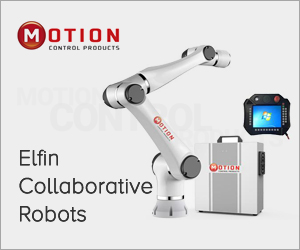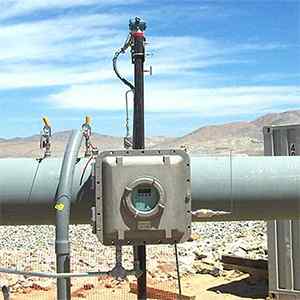Instrumentation Companies and Cybersecurity in the Era of Smart Manufacturing

Introduction
The manufacturing industry has been revolutionized by the emergence of smart manufacturing, also known as Industry 4.0. This transformative approach utilizes cutting-edge instrumentation technologies, including interconnected sensors, data analytics platforms, and automation systems, to optimize production processes. While smart manufacturing offers numerous benefits, it also brings along new challenges, especially in the area of cybersecurity. In this article, we will delve into the pivotal role played by instrumentation companies in driving smart manufacturing and emphasize the crucial significance of robust cybersecurity measures to safeguard these interconnected systems.
The Emergence of Smart Manufacturing
Smart manufacturing represents a radical departure from traditional production methods, as it embraces data-driven and interconnected processes. By integrating technologies such as the Internet of Things (IoT), artificial intelligence (AI), and big data analytics, smart manufacturing achieves higher efficiency, reduced downtime, and enhanced quality control. The central tenet of smart manufacturing lies in the connectivity of every facet of the manufacturing chain, allowing real-time monitoring, analysis, and decision-making, which ultimately reshapes the industry.
Role of Instrumentation Companies in Smart Manufacturing
Instrumentation companies are pivotal in transforming conventional manufacturing into smart manufacturing ecosystems. At the forefront of innovation, these companies develop and integrate an array of sensors, actuators, and control systems that serve as the backbone of interconnected production processes. Through continuous advancements, instrumentation companies facilitate seamless data collection, analysis, and automation, empowering manufacturers to make informed decisions and enhance overall performance.
The diversity of instrumentation solutions provided by these companies caters to various industries, from automotive and aerospace to pharmaceuticals and consumer electronics. The implementation of sophisticated sensors and data analytics platforms enables manufacturers to gather real-time insights, identify inefficiencies, and optimize production lines for increased output and resource savings.
Understanding Cybersecurity Risks in Smart Manufacturing
As manufacturing systems become more interconnected and data-driven, they become prime targets for cyber-attacks. Cybersecurity risks in smart manufacturing encompass unauthorized access to sensitive data, disruptions in production processes, and potential damage to physical assets. The interconnectivity of smart manufacturing systems introduces vulnerabilities that malicious actors can exploit, necessitating the implementation of robust security measures.
A common concern is the threat of ransomware attacks, where cybercriminals encrypt critical production data and demand a ransom to restore access. This type of attack can lead to production shutdowns, resulting in significant financial losses, reputational damage, and potential safety hazards. Additionally, intellectual property theft is a constant worry, as it can compromise a company's competitive edge and market position.
| Also Read: Safeguarding Your Smart Manufacturing: Tackling Cybersecurity Challenges |
Importance of Cybersecurity in Smart Manufacturing
The impact of successful cyber-attacks on smart manufacturing can be severe. Incidents leading to downtime can result in substantial financial losses and tarnish a company's reputation. Moreover, intellectual property theft and data breaches can have far-reaching consequences for both manufacturers and their customers. Cybersecurity is no longer a reactive approach but a proactive strategy to protect manufacturing operations, ensure data integrity, and maintain business continuity.
With advancements in digitalization, industrial control systems (ICS) are now more exposed to the public internet, increasing their susceptibility to cyber threats. Insecure or unpatched devices, lack of network segmentation, and inadequate user access controls create potential entry points for cybercriminals.
To combat these challenges, manufacturers must adopt a holistic approach to cybersecurity. This includes conducting regular risk assessments, investing in cybersecurity training for employees, implementing multi-layered security measures, and establishing incident response plans.
Cybersecurity Solutions by Instrumentation Companies
Top instrumentation companies recognize the critical role of cybersecurity in smart manufacturing and offer a range of solutions to address these challenges. They provide secure communication protocols, encryption mechanisms, and authentication processes to protect data exchange between devices. Additionally, they incorporate cybersecurity features into their sensors and control systems, fortifying them against cyber threats.
One crucial aspect of cybersecurity in smart manufacturing is the integration of secure communication protocols for data transmission between sensors, devices, and the central control system. Instrumentation companies ensure that data is encrypted during transmission and that only authenticated devices can access critical information. Moreover, continuous monitoring of communication channels helps detect any abnormal or suspicious activities, enabling prompt responses to potential cyber incidents.
The implementation of robust access controls is another key element in protecting smart manufacturing systems. Instrumentation companies work closely with manufacturers to define and enforce user access rights, ensuring that only authorized personnel can access sensitive data and critical production processes. By implementing role-based access controls, companies can limit the scope of data accessibility and minimize the impact of potential security breaches.
Furthermore, instrumentation companies collaborate with cybersecurity experts to conduct penetration testing and vulnerability assessments on their products. These assessments help identify potential weaknesses and vulnerabilities, enabling timely patching and updates to enhance the overall security of smart manufacturing systems.
Collaborations and Partnerships
Recognizing the complexity of cybersecurity challenges, instrumentation companies often collaborate with cybersecurity firms to bolster the security of smart manufacturing systems. Such collaborations harness expertise from both domains to develop integrated security solutions that effectively safeguard interconnected manufacturing processes.
Compliance and Regulations
As smart manufacturing gains prevalence, adherence to cybersecurity standards and regulations becomes imperative. Instrumentation companies ensure their products meet industry-specific cybersecurity requirements and partner with manufacturers to achieve compliance.
Future Trends and Recommendations
The future of smart manufacturing will continue to emphasize cybersecurity. Instrumentation companies will invest in research and development to enhance security features further. Manufacturers must prioritize cybersecurity as an integral aspect of their smart manufacturing strategy, implementing regular updates and patches for their systems.
Automation and Artificial Intelligence
Automation and artificial intelligence (AI) are pivotal components of smart manufacturing, facilitating efficient and autonomous control of production processes. Instrumentation companies integrate AI capabilities into their control systems to streamline production, anticipate maintenance requirements, and identify irregularities that could signal cybersecurity breaches. Through real-time analysis of extensive data, AI-driven automation improves decision-making and reduces response times to potential cyber threats.
Conclusion
Instrumentation companies play a crucial role in driving smart manufacturing, extending beyond technological innovation. Collaborating with manufacturers to establish robust cybersecurity measures is vital in safeguarding interconnected systems from potential cyber threats. A proactive approach to cybersecurity will allow smart manufacturing to revolutionize the industry while protecting its most valuable assets—data and productivity.
By incorporating detailed explanations and real-world case studies, this article emphasizes the vital link between instrumentation companies, smart manufacturing, and cybersecurity, advocating for proactive security measures and industry collaboration for a secure and successful future. Embracing cybersecurity in smart manufacturing is not an option; it is a necessity for a resilient and successful future. With continuous advancements and collective efforts, the manufacturing industry can fully realize the potential of smart manufacturing while safeguarding its digital infrastructure from cyber threats.







